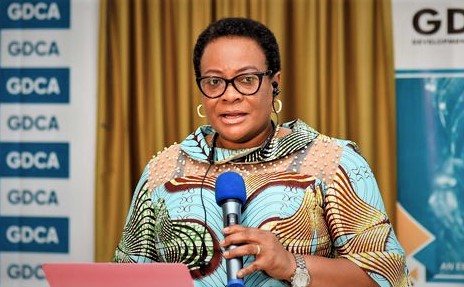The Ghana Integrity Initiative (GII) has said it is not surprising that politicians sometimes see the Corruption Perceptions Index (CPI) as an inefficient way of determining a government’s commitment towards corruption fight, especially when the report does not speak well of their administration.
The GII says comments made by politicians differ when they are in government and in opposition.
Executive Director of the GII, Mary Awelana Addah, speaking on Ghana Tonight Tuesday, January 30, 2024, on TV3 said it would be erroneous for anyone to assume that the CPI is not efficient in determining a government’s effort in fighting the canker because it is a mere perception.
She said the assertion that the modus is not efficient “does not suffice on several counts because when you’re listening to a political narrative, it then goes to suit whoever it is affecting at any time and so people will say this is perception when they are in government. When they are out of government they see the relevance of the CPI but that’s not surprising,” she indicated.
“It is not surprising because we know these government officials appreciate the nuances and the discussion around corruption is one that is enabled either by legislation, by procedure, policy or by practice,” she added.
The GII boss, however, bemoaned the challenges surrounding reporting on corruption which does not make it attractive for people to do so, and also for the fact that the act is usually covert.
“Unfortunately, the act of corruption is one that does not immediately bring about the issues around transparency. It’s because its hidden activity, people are hesitant to report because of the issues around reporting –either there are reprisals, people are seen as snitches or they tend to get seriously vilified for bringing out issues about corruption,” she pointed.
She also said that the CPI constitutes various indices with a minimum of three and maximum of 12, with Ghana’s own comprising 9 surveys making up the indices. She continued that, the survey samples people with expertise where their consent on public sector corruption are sought, making it one of the most credible information anyone could gather about corruption.
“The CPI is an aggregate of various indices and in each country, you’ll realise that the least number of surveys that make it into the indices is about three and the highest is 12. So, out of these 12, Ghana alone had nine of them and I can tell you that these indices are based on credible information,” she noted.
For the fourth consecutive year, “Ghana scored 43 out of a clean score of 100 and ranked 70th out of 180 countries and territories included in the Corruption Perceptions Index (CPI) 2023 released today, 30th January 2024 by Transparency International (TI). This marks the fourth consecutive year of stagnation in Ghana’s anti-corruption efforts, as indicated by the CPI.”
Ghana’s deteriorating justice system which is compromising accountability to grant public officials the liberty to thrive in corrupt activities, according to the Transparency International, is the reason for the country’s continuous stagnation.
Transparency International blames Ghana’s poor CPI performance on deteriorating justice system













